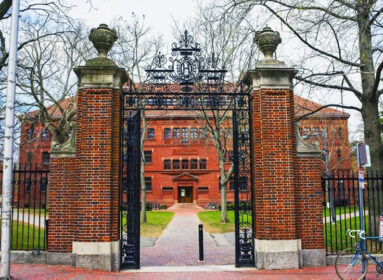
Connecticut’s Jewish community speaks out – and Congressman John Larson listens
By Judie Jacobson
WEST HARTFORD – The meeting was called for 2 p.m. in the third-floor probate courtroom of West Hartford’s Town Hall. But it was a few minutes before two, and already they were shlepping in additional folding chairs to accommodate the overflow crowd.
And still they kept coming. Finally, when it appeared there might not be enough space left in the room for John Larson himself, the Town Hall Forum organized by Connecticut’s First District congressman to discuss with consituents the Joint Comprehensive Plan of Action – aka “Iran Deal” – was adjourned to the more spacious auditorium down the hall.
And so began a three-hour open session on Sunday afternoon, July 19, in which close to 200 area residents – seemingly all members of the Greater Hartford Jewish community — voiced their concerns regarding the Iran nuclear deal recently negotiated by the United States and other P5+1 countries, now headed to Congress for approval or disapproval.
Larson opened the forum with brief introductory remarks that included praise for Bibi Netanyahu. Referring to statements the Israeli prime minister made when interviewed that morning on network news programs, during which Netanyahu acknowledged strong differences between himself and President Obama on the merits of the agreement, Larson said, “The Prime Minister said that the United States and Israel will remain strong allies, and I think that is beyond true. I believe that the relationship will only be strengthened and enhanced even though this debate will rage in Congress. My caution is for everyone to keep in mind what Mr. Netanyahu said: even though there can be honest and forthright disagreement as to how to achieve the ultimate goal — the goal is Iran without nuclear weapons.”
Larson then invited audience members to approach microphones set up on either side of the auditorium to ask questions and speak their mind. And speak they did.
Clearly skeptical and dispproving of the deal – only one of the 30-something speakers advocated for the agreement – those who approached the microphone included an Iranian Jew who described American foreign policy as “naive;” a 24-year-old political science student who served in the Israel Defense Forces and made an impassioned plea for Congress not to ignore the issue of Iran’s human rights violations; a prominent West Hartford businessman and Jewish community leader who pressed the Congressman to “commit to us all here that you will vote according to the preponderance of your constituents” (Larson did not commit); and a rabbi who commended Larson for “being so forthright and so responsive and for listening.”
Chief among Larson’s points was the imperative to back up the deal with an option to use military force should Iran violate the terms of the agreement – a responsibility he laid squarely on the shoulders of Congress.
While for the most part he appeared to advocate for approval of the deal, Larson noted its imperfections and risks, and criticized the President for seeking UN Security Council approval before allowing Congress to complete its 60-day process of review. His constituents shared his dismay.
“By the time Congress makes a decision the UN will already have taken a vote and signed onto the deal — which means that if the Congress does not approve of this deal the rest of the world will not listen to the U.S. and the U.S. will be alone,” Dr. Robert Harris of West Hartford told Larson. “I suspect that Mr. Obama has used this as an end-run around Congress and that whatever Congress does will be moot. I think that is wrong.”
In response, Larson vowed to send a letter to the President urging him to delay the Security Council vote. He followed up on his promise the next morning. (An excerpt of his letter to the President is included on the following page.) Regardless, the President did not delay the vote, and the UN Security Council and EU both voted to approve the agreement on Monday, July 20.
The following are a few of the points made by the Congressman during his talk.
• “I have said in no uncertain terms that the United States foreign policy on Iran especially as it relates to the Middle East and our strongest ally Israel would always require a regional solution. From the perspective of the U.S., if we cannot bring the region together to understand the mutual threats and concerns not only to the region but to the world as well, then we continue not to make progress. American soldiers on their own can no longer sustain or go it alone in the Middle East.”
• “We need to make sure that we’re very clear about what the response will be on behalf of the United States should Iran violate this deal. … We’re talking about deterrence in the form of use of force. There is one country that can deliver that; and that’s the United States. … I think a lot of our allies need that assurance, and I think, to be completely honest about it, they haven’t seen that from this administration. And so, aside from the deal, Congress should authorize the President to use whatever military force is necessary. I think we should make that clear.”
• “This deal is not a treaty for global peace; this is a very narrow arms deal.
So, rightfully, it does not address other questions that exist out there: including American hostages, including the exporting of terrorism to Hezbollah and Hamas, and in general the UN rights violations that have gone on, not the least of which are to the Iranian people.
This is with the specific goal of trying to stop them from getting a nuclear weapon. That’s the context.”
• “Anytime you strike a deal with anyone can they violate it? Yes. But when else have we had the rest of the world with us saying to them ‘no’? The strength of this deal is the moral ground it gives us and the regional relationships and the alliances that it will supply us with.
If the U.S. walks away, what will we say in the future about diplomatic solutions?”
• “I can completely understand why some people are saying the deal is insufficient; it doesn’t go far enough; it’s not tough enough; we could have done this or that. Agreed. But this is what we have. And so, the question then becomes are we going to approve or disapprove? And what are the consequences of that? And, looking at those consequences, what are we prepared to do?
• “This is not by any stretch any kind of perfect document that isn’t going to require our ongoing vigilance and assessment of risk every step of the way in all of its compartments — whether its humanitarian rights, economic sanctions going forward, etc. I do think that we’re seeing other alliances. I’m glad to see Saudi Arabia standing with Israel; I’m glad to see that they too recognize this Iranian threat. I’m also interested to see how all this stands along the Russian border; and how China views this with respect to its growing Islamic threat. And then, what will be the consequences in Syria and Yemen.”
• “I think in the signing of any agreement we’re constantly renegotiating and i think that’s something that will need to take place.”
Dear Mr. President…
An excerpt from Congressman John Larson’ July 20 letter to President Obama
“Many of my constituents disagree with the UN Security Council holding the vote prior to Congress having an opportunity to reach a consensus on the agreement, and they are calling for a delay.
I find their request to be quite reasonable, as a preemptive vote could be seen as undermining the Congressional role in reviewing the JCPA. I am writing today to inquire as to why the vote will be held prior to the conclusion of the Congressional review process. I—like many in my District—believe a delay until the conclusion of this 60-day review would better maintain Congress’ role in this critically important topic. This delay would in turn provide a greater legitimacy to the national dialogue, which I believe is critical to the long-term success of the JCPA.”







 Southern New England Jewish Ledger
Southern New England Jewish Ledger















